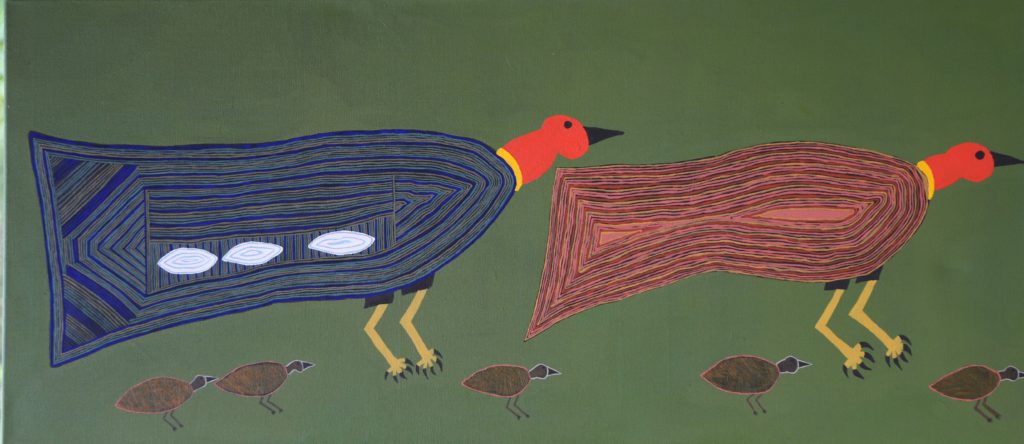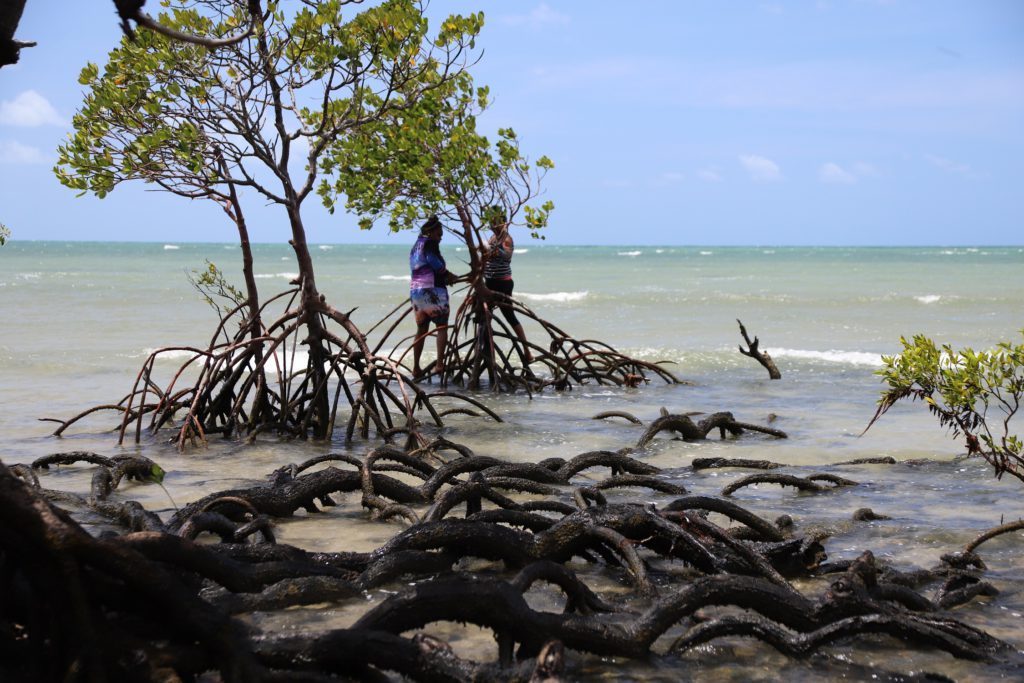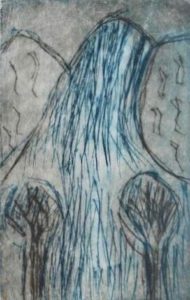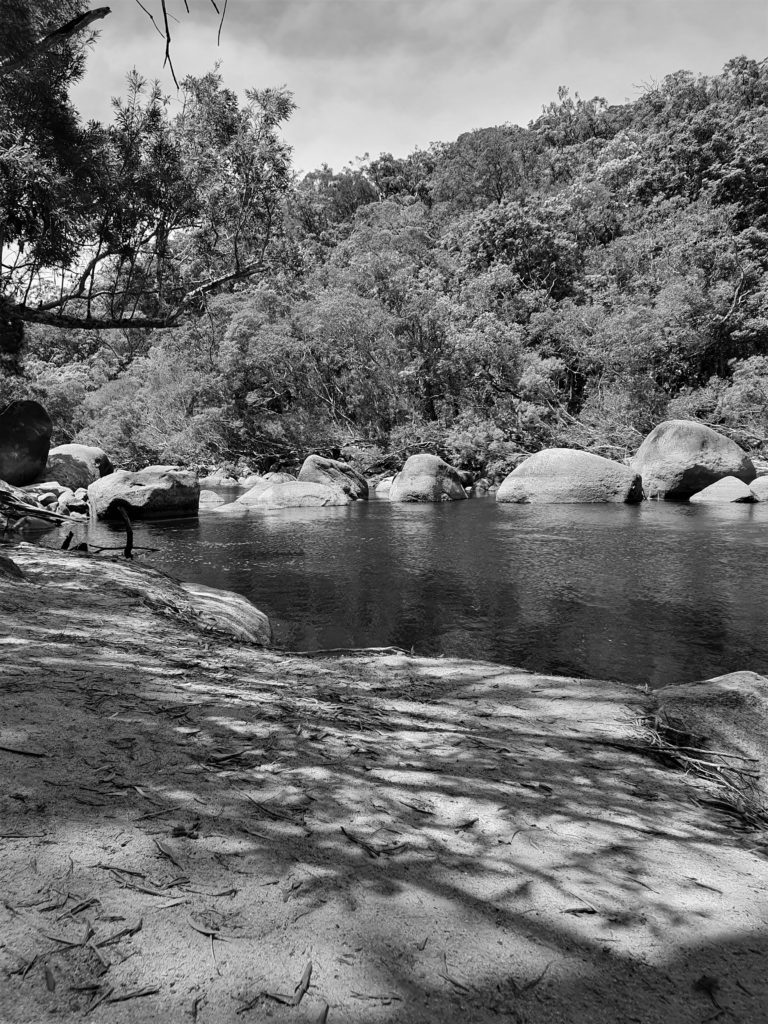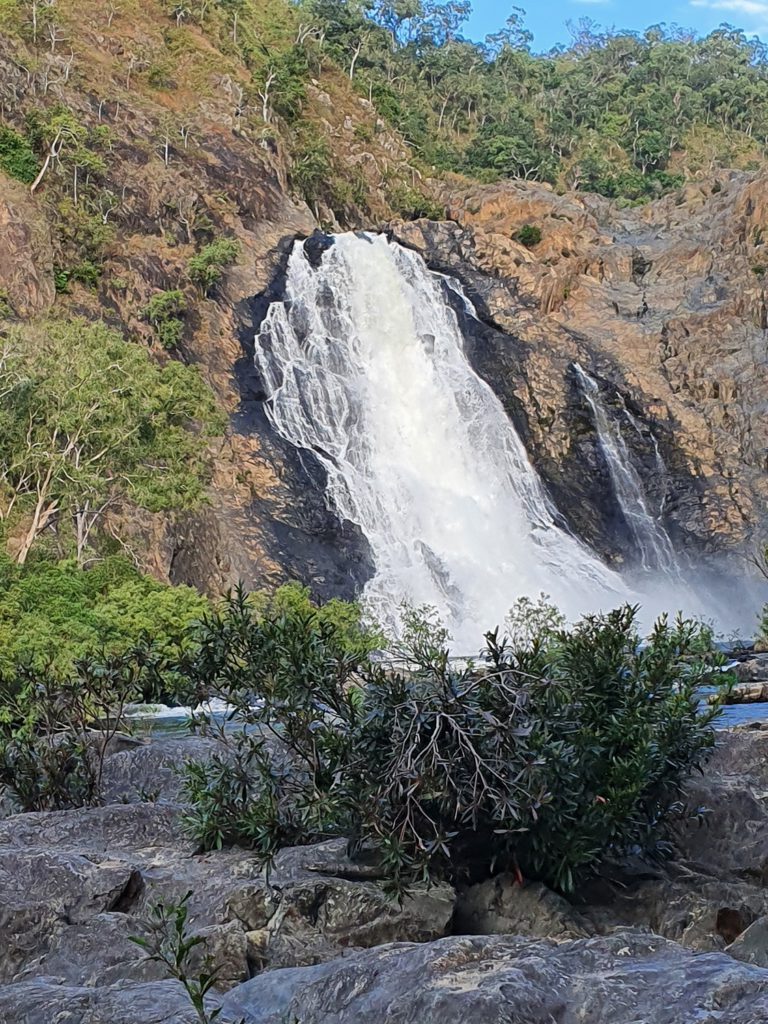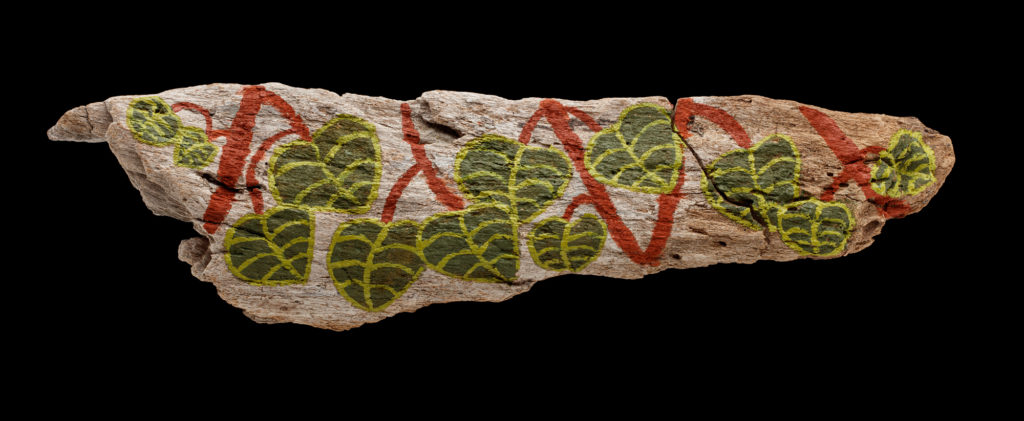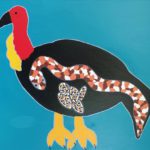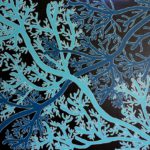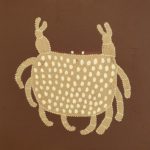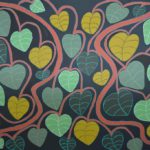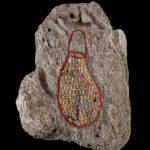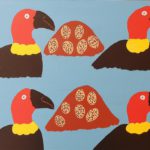Welcome to Our Country
The Eastern Kuku-Yalanji nation includes several warra (clans) including the Kuku-Nyungkal and the Jalunji-Warra.
Kuku-Yalanji language is a living language, spoken throughout the area. Eastern Kuku-Yalanji country is diverse and includes ancient rainforest, coastal mountains, expansive valley areas, coastline and reef and is approximately 70,000 hectares in size. Kuku Yalanji homelands are included in two World Heritage listed areas, the Great Barrier Reef, and the Wet Tropics. Watch Welcome to Country
Ngujakuramun
Ngujakuramun, (Dreaming) is the foundation of Kuku-Yalanji life and society and is reflected in the ongoing connection with bubu (land) and jalun (sea). Ngujakuramun, refers to the ‘creation period’ where the ancestors created the world and established the laws for bama. Ngujakuramun, connects bama to Country and to each other.
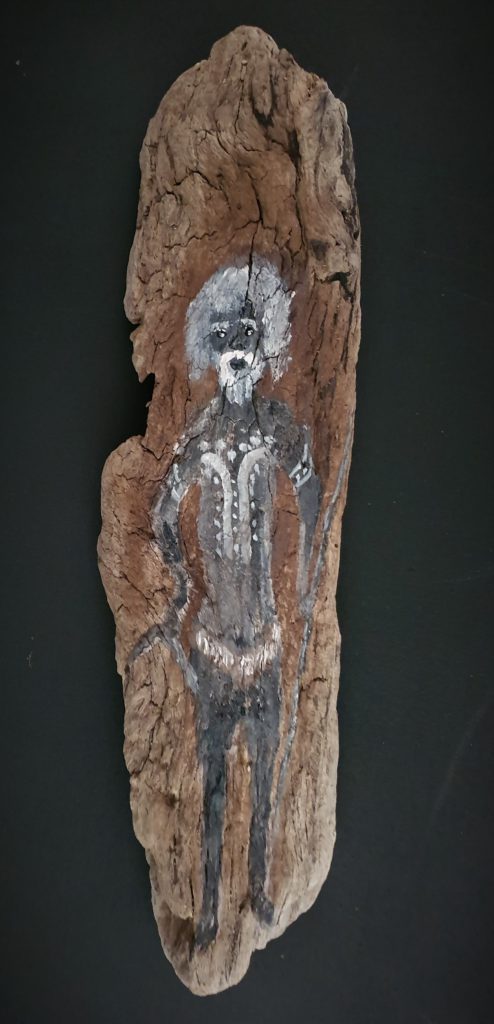
Bama 2019 by Daniel Gordon. Acrylic on Driftwood. NMA Collection
